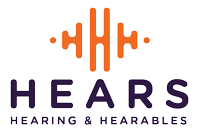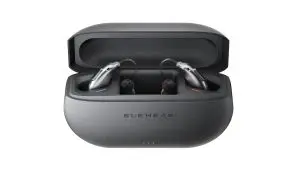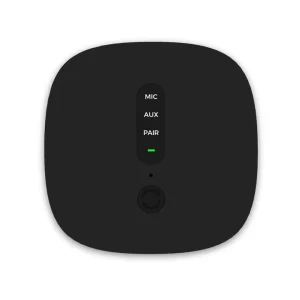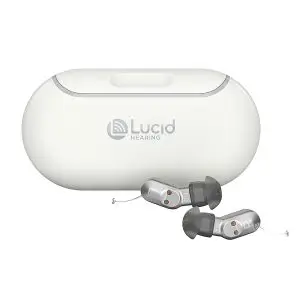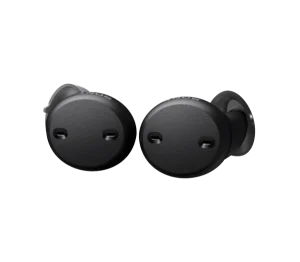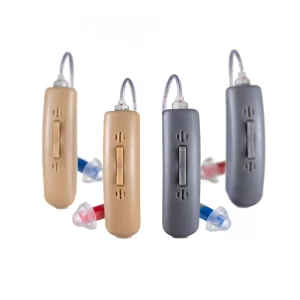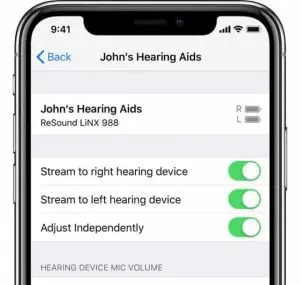Challenges Impeding Swift Innovation in Over-the-Counter Hearing Aids
Hearing aids sold over the counter have thus far struggled to meet consumer expectations. From my perspective as an experienced audiologist, there are multifaceted reasons contributing to this challenge. Among the primary hurdles faced by new entrants in the hearing aid market is the substantial financial backing that established manufacturers possess. Which makes it arduous for smaller, innovative players to compete. This dynamic is a recurring theme in various industries. As the presence of monopolistic market leaders can stifle new innovations by virtue of their financial and market influence. In the hearing aid industry, these complexities are particularly pronounced, impacting the pace of meaningful innovation in over-the-counter solutions.
Addressing the Regulatory Hurdles is an expensive process that must be dealt with first. Historically, hearing aids have been classified as medical devices and were only available through licensed audiologists and hearing healthcare professionals. The U.S. Food and Drug Administration (FDA) regulates the manufacturing and distribution of these devices to ensure they meet safety and efficacy standards. Transitioning to an OTC model required regulatory changes to establish safety and quality control guidelines such as:
Safety and Efficacy Standards:
The FDA is likely to set safety and efficacy standards to ensure that OTC hearing aids meet minimum performance requirements. This includes the accuracy and consistency of sound amplification, feedback management, and noise reduction features.
Labeling and Instructions:
Regulations may require clear and comprehensive labeling on OTC hearing aids. This includes instructions for use, maintenance, and safety precautions. Ensuring that consumers understand how to properly use and care for their devices is essential.
Quality Control:
Manufacturers of OTC hearing aids might need to establish and maintain quality control measures during production. This would include periodic testing and verification to ensure that devices meet established standards. This would be difficult for new comers into the field.
Consumer Education:
The FDA mandates that OTC hearing aid packaging and marketing materials include information about the importance of having a hearing evaluation and the potential risks of untreated hearing loss. Clear educational materials can help consumers make informed choices.
User-Friendly Design:
Regulations encourage the development of OTC hearing aids with user-friendly design elements. Thus, ensuring ease of operation and comfort for consumers. Especially for those who may not have prior experience with such devices.
Product Registration and Reporting:
Manufacturers will be required to register their OTC hearing aids with the FDA and promptly report any adverse events or safety issues to ensure a timely response to potential problems.
Compliance with Applicable Standards:
Manufacturers may need to ensure that OTC hearing aids comply with relevant industry standards to meet specific performance criteria.
Big Hearing Aid Companies Dominate Hearing Aids Sold Over the Counter
New Companies and New Ideas Face Obstacles
Introducing a new product into a market dominated by established monopolies can be an immensely challenging endeavor. These industry giants often control significant market share, have substantial resources for marketing and distribution, and maintain a loyal customer base.
New entrants face numerous obstacles. From building brand recognition to competing on pricing, as established monopolies can leverage economies of scale and wield significant pricing power. Additionally, monopolies can use their influence to shape regulations and industry standards, further hindering new competitors.
Navigating such a landscape requires not only innovative products but also strategic differentiation and patience to gradually carve out a niche in the market, often requiring substantial investment and resilience to overcome the substantial barriers to entry that monopolies present.
Why Hearing Professionals Matter
As audiologists and hearing healthcare providers, we possess the knowledge and expertise required to address individuals’ diverse hearing needs. Our extensive training encompasses not only a comprehensive understanding of auditory physiology but also the intricate principles of sound physics.
Hearing solutions vary based on the specific environmental contexts in which they are applied. An array of factors, including the degree and type of hearing loss, its underlying causes, the individual’s age, cognitive capabilities, memory, and auditory processing skills, all play pivotal roles in determining the most suitable interventions to enhance an individual’s ability to engage and actively participate in conversations. It can be disheartening for providers to observe the limited range of tools and business models at our disposal to aid those in need. Especially when considering the broad range of factors that must be taken into account to achieve optimal hearing outcomes.
The availability of a diverse array of treatment tools for individuals with hearing loss holds significant importance. Primarily because a singular, one-size-fits-all approach is not conducive to addressing the unique needs of each individual. Innovation is a key driver in this context. Not only in terms of product development but also in the models and methodologies we employ to facilitate access to the most suitable solutions for individuals with hearing impairments.
There is No One-Size-Fits All Solution
Hearing loss is a complex and highly individualized condition that exhibits variations in severity, type, and underlying causes. It is crucial to acknowledge that one-size-fits-all solutions are inadequate to address the diverse needs of individuals with hearing impairments.
Ideally, offering a range of over-the-counter (OTC) hearing aid options would be a commendable approach. Regrettably, the OTC hearing aids currently available in the market are essentially repurposed prescription hearing aids, which have already received FDA approval and undergone rigorous testing.
Leading Manufacturers Partnering with the Big Guys
Leading hearing aid manufacturers like Signia, Phonak, and Resound have entered into collaborations with renowned Fortune 500 companies, including Sony, Sennheiser, Jabra, and Bose, which have established themselves as purveyors of high-quality audio products. This partnership presents a valid question: why would a consumer opt for an unfamiliar brand, potentially at a higher cost, when established and trusted alternatives such as Bose exist?
Furthermore, industry giants like Apple, which could potentially launch their own OTC hearing aids, are positioning the hearing aid market for further transformation. Warranting vigilant attention to emerging innovations and competitive dynamics.
Another pertinent issue revolves around the vested interests of hearing aid manufacturers, audiologists, and hearing healthcare professionals, who inherently intertwine with the established model that necessitates professional intervention for hearing aid provision. The prospect of transitioning towards over-the-counter (OTC) hearing aids introduces the potential for significant disruption to long-standing industry practices, consequently garnering resistance from certain stakeholders.
The accelerated momentum and heightened attention surrounding the shift towards OTC hearing aids may inadvertently empower select industry leaders to assert dominance. As a proactive measure, Hears Hearing & Hearables is dedicated to safeguarding the interests of smaller, innovative hearing aid manufacturers, with the overarching aim of not only endorsing and nurturing novel innovations but also ensuring their accessibility to those grappling with hearing loss.
New Innovation with more hearing aids sold over the counter is a challenge
Hears Hearing & HeaHears Hearing & Hearables is a newer company that these stakeholders do not own. Although Hears Hearing & Hearables is owned by an Audiologist and hence a type of a stake holder. We feel our goal in supporting hearing aids sold over the counter is altruistic. Going to school for years, Audiologists have a vested interest in continuing to do what we love, help people. Just because one wants to purchase a hearing aid over the counter for whatever reason. Be it saving money or more accessible buying online. Hears Hearing & Hearables aims to continue assisting those who purchase over-the-counter hearing aids. We will sell them and we will service these OTC Hearing aids. Our commitment extends beyond industry dynamics to the fulfillment of our mission.
Mission: Empower individuals with hearing impairment with innovative solutions that can enhance their quality of life. Make it easy, affordable, accessible, and don’t forget .. with the transparent model of purchase.
